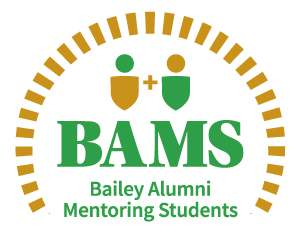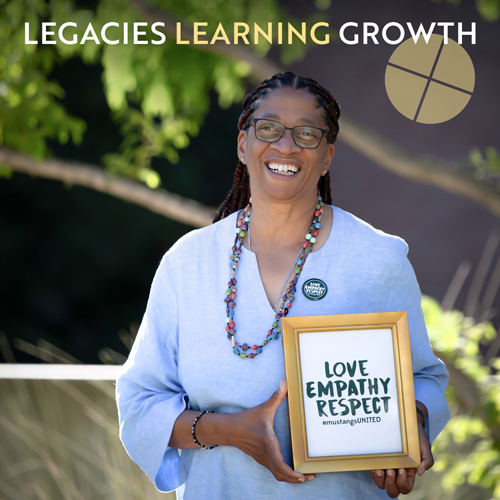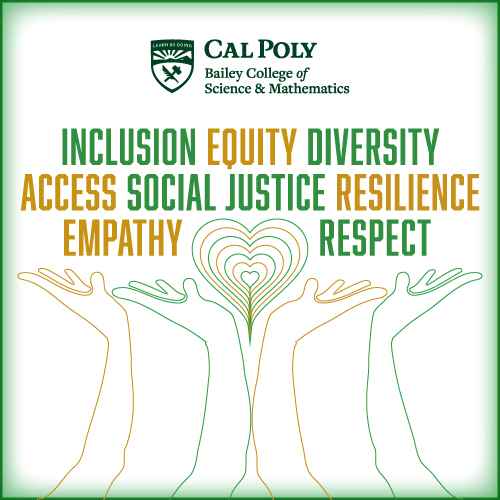So What's It Like to Be a Venture Capitalist?
 Honored Alumnus Mike Abbott sat down with students to talk about what Cal Poly biochemistry has to do with being a vice president at Twitter and a partner at venture capital firm Kleiner Perkins Caufield & Byers. Following is an excerpt from that conversation.
Honored Alumnus Mike Abbott sat down with students to talk about what Cal Poly biochemistry has to do with being a vice president at Twitter and a partner at venture capital firm Kleiner Perkins Caufield & Byers. Following is an excerpt from that conversation.
What was the most challenging thing about your job at Twitter?
I was brought in to rebuild the team and the infrastructure. The investors were keen to ensure that the service was up and running. I knew how building teams, which at the end of the day is where everything starts. Even in my current job, it’s all about talent. We’re taking bets on people. We might have an interesting view on a particular market or product, but it’s really a bet on the people. So that I felt I could do.
The part I wasn’t sure about was that none of the founders of Twitter were technical, which is fine — a lot of consumer companies are like that. But one of the implications of that was that shiny new things always had higher priority than “Is the site available? Is it performing?”
One of the cultural changes was— and the founders were very supportive —how do we get “Is the service up and running?” on par with the other? Culture gets set very early in companies. Then you can change it slight degrees, and I wasn’t sure how people would react to that.
What was it like fixing the Obamacare website? How did you get pulled into that?
My partner John is close to the president. He got a call on a Saturday from someone on the president’s staff, and I got a call from John, hey, can you at least do a phone call with Todd Park, who until recently was the CTO (chief technology officer) of the United States. My role in this — I got on a plane the next day — was to figure out: could we fix it or did it all have to be rewritten? That was the one question I was tasked with — and to recruit people. After two days, I determined we could fix it primarily because the contractors were open to us making a lot of changes, to their credit.
One of the great things that’s come out of it is that Todd is now using that playbook across, for example, the VA (Veteran’s Affairs). How do we help vets get treatment and care sooner? How do we take that same playbook to the IRS? And at the same time, he’s recruiting people like you and those a little later in their career into the United States digital service to do stints of six months or two years to help with these projects.
As an investor, what time scale do you work on? Quarter to quarter? Decade to decade?
The feedback cycles are incredibly long in investing, especially in venture capital. I invest in a company, and I won’t know whether it’s successful for five to seven years. What’s even more challenging, the companies that clearly are not going to work out — will you see sooner?
I’m at year three. Fortunately, nothing’s died yet, but it is really weird. As someone who’s used to building teams, shipping product, getting feedback and based on that feedback, iterating more of this, less of this, the feedback loop is incredibly long.
Do you have a day-to-day thing you do to develop yourself and not burn out?
I’m in a very fortunate position where I primarily only get to meet with smart people. It’s quite a luxury. I probably meet with 10-15 new companies a week and four companies from the prior week, and we might decide to invest in one of them, maybe.
So what do you do with the rest of your time? I’m on the board of seven companies, so I have to deal with those. But there’s still time outside of that. I like meeting people.
Next week, another partner and I are flying to New York because four times a year we pull together 25 CIOs from the Fortune 250, and they talk about, what are their priorities, what are they thinking on security, what are they thinking about iPads in the office, so whatever it is, it’s great for us to learn. And it’s great for them because they share data. A JP Morgan can learn from a Goldman Sachs about what’s actually going on. And outside of that, I do massive amounts of reading.
Which do you enjoy more, leading teams or being a venture capitalist?
This particular role has high intellectual return and low emotional return, and I think leading teams is the opposite. It’s fun to ship product as a team, but when you’re leading a large team, day to day you’re dealing with personnel issues. In the beginning, there’s some intellectual work in programming, but it’s very different from investing. So for me, I try to fill that emotional component through, for example, helping an entrepreneur hire a designer or introducing them to Pepsi as a customer.
How much impact did your biochemistry degree have? Would you go back and do a different degree?
I wouldn’t change a thing. One of the primary things I learned during my time here was how to learn. That in itself was incredibly important. I’ve had the most random career path you can imagine, and I really enjoy being uncomfortable.
I think that notion of intellectual curiosity is one of the things I got here. [Cal Poly] didn’t pay me $20 to say that. I think that’s incredibly important, and I think that’s one of the things I’ve carried with me. Now I have this amazing role where I get paid to be taught about a wide range of different things. Plus, being multidisciplinary, if you can pull it off, is the best.
What were you like when you were a student at Cal Poly?
It really depends on post or pre-Metabolism. I mean that quite sincerely and in a positive way. (Chemistry professor emerita) Tina Bailey’s class really turned an inflection point for me that impacted the rest of my life. Up until I took Metabolism, I was just cruising along.
I can’t stress that enough. I made all these little decisions here and there, and I have to say, the butterfly effect for me was genuinely that class. It set in motion for me that desire to learn. If it was after, I’d be thinking, what can I learn from this person?
I was not exceptional when I was at Cal Poly. You can look at the numbers. That’s actually really important. Just because you’re not the top student, there are still amazing things you can go do in a lot of different places. I think the experience here allows you to do really broad things. I mean, how wacky is it that I graduated in chemistry and I worked for one of the 10 technical fellows at Microsoft writing code? That’s kind of weird.
What would you say to students who are wondering where they’ll end up?
If you want to take something away from this, there’s no one path. More often than not, it’s very non-linear, it’s very difficult to predict.
Working around great people, independent of what you do, is critical. Second, in my view, if you’re ever in a situation where you start to feel comfortable, I would move into a different situation where you’re uncomfortable because that’s where you learn at an accelerated rate. And you just have more fun. I have more fun doing that. Now there may be people who want to work 30 years at the same place, and there’s nothing wrong with that.
You have to pivot to different places to figure out what you can be passionate about. If you were thinking about starting a company because you want to make a lot of money, you will fail. There are much easier ways to make money than to start a company. But you do that because you’re passionate about working with a group of people to solve a particular problem.
Exploring and finding different things is something that your generation does. The average job tenure at any company is 18 months. You can try different things to find the one that you can be passionate about and love.




